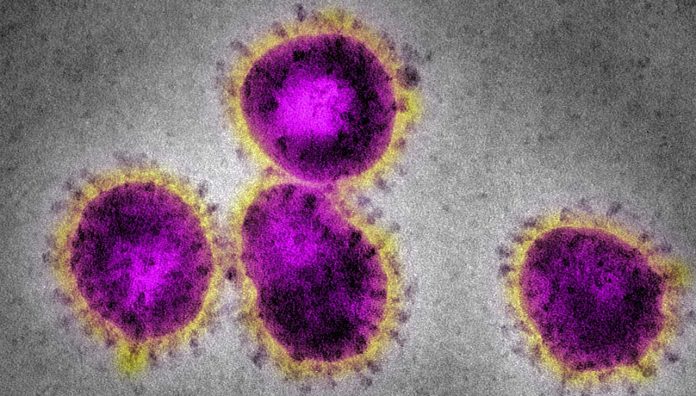‘Precautionary and active surveillance’ is required to manage the risk of a novel coronavirus outbreak in China, Australia’s Chief Medical Officer Professor Brendan Murphy said yesterday.
However, the risk to the Australian public remains ‘relatively low’, he said.
Chinese health officials have confirmed up to 300 cases1 of a SARS-like infection, first detected in the city of Wuhan four weeks ago.
Six cases have now been discovered outside of Wuhan2, including in other Chinese cities and in Japan, South Korea, Thailand and the United States (US). Three deaths have been confirmed.
The Centers for Disease Control and Prevention1 (CDC) is closely monitoring the outbreak with the first US case1 identified in Seattle this week.
The virus has been linked to a seafood market in Wuhan, but authorities have since established it has spread to people who had not visited the market.
Coronaviruses3 are a large family of viruses that cause illness ranging from the common cold to more severe diseases. They can be transmitted between animals, people and between animals and people. A coronavirus was responsible for the Severe Acute Respiratory Syndrome (SARS), which also began in China and killed nearly 800 people globally during an outbreak in 2002-2003.
The novel coronavirus identified in Wuhan is a strain not previously identified in humans.
Professor Murphy said4 the risk to the Australian public remained ‘relatively low’ and that the Department of Health was ‘alert but not alarmed’.
However, he said it was necessary to implement additional measures to manage the risk.
‘There has been a significant increase in case numbers, evidence of some human-to-human transmission and we’ve heard reports now of six deaths, even though the case numbers are probably over 300,’ Professor Murphy told the ABC5 this morning.
‘So, we have more concern than we had last week, but we’re well prepared in this country to respond.’
With three direct flights a week from Wuhan to Sydney, NSW Health officers and border security staff will begin assessing passengers arriving at Sydney Airport for signs of the virus from tomorrow.
All passengers on direct flights from Wuhan will receive information about the virus on arrival. They will be requested to identify themselves to biosecurity officers if they are unwell. If they have symptoms of an infectious disease they will be assessed by a NSW Health officer.
While there have been no confirmed cases of the virus in Australia to-date, results are pending for a Brisbane man who recently returned from Wuhan and presented to his GP with flu-like symptoms.
NSW Health Director of Health Protection Dr Jeremy McAnulty said advice was also being provided to travellers who may have already returned from Wuhan, as it can take up to two weeks for symptoms to develop.
Common signs of infection3 include respiratory symptoms, fever, cough, shortness of breath and breathing difficulties. In more severe cases, infection can cause pneumonia, severe acute respiratory syndrome and kidney failure.
‘There is no need for alarm, but people should be aware of the emerging situation and if they develop symptoms on returning from affected areas overseas, they should call ahead before seeing their GP,’ Dr McAnulty said6.
For more information, consumers can visit the Department of Health website4.
References
- Centres for Disease Control and Prevention. 2019 Novel coronavirus, Wuhan, China: Situation Summary. 2020 January 21. At: www.cdc.gov/coronavirus/2019-ncov/index.html
- Centres for Disease Control and Prevention. First travel-related case of 2019 novel coronavirus detected in United States. 2020. At: www.cdc.gov/media/releases/2020/p0121-novel-coronavirus-travel-case.html
- World Health Organization. Health topics: coronavirus. At: www.who.int/health-topics/coronavirus
- Australian Government Department of Health. Canberra. Novel coronavirus update: a statement from the chief medical officer about novel coronavirus. 2020 January 21. At: www.health.gov.au/news/statements/novel-coronavirus-update
- Lane S. Australia ‘well prepared’ for coronavirus: chief medical officer. 2020 January 22. At: www.abc.net.au/radio/programs/am/australia-well-prepared-for-coronavirus:-chief-medical-officer/11888456
- NSW Government Health Department. NSW Health advice to travellers returning from Wuhan, China. 2020 January 21. At: www.health.nsw.gov.au/news/Pages/20200121_00.aspx



 Dr Peter Tenni[/caption]
Dr Peter Tenni[/caption]
 How should we deprescribe gabapentinoids, according to the Maudsley Deprescribing Guidelines[/caption]
How should we deprescribe gabapentinoids, according to the Maudsley Deprescribing Guidelines[/caption]



 Pharmacists have always prescribed, but they have the potential to prescribe much more
Pharmacists have always prescribed, but they have the potential to prescribe much more





